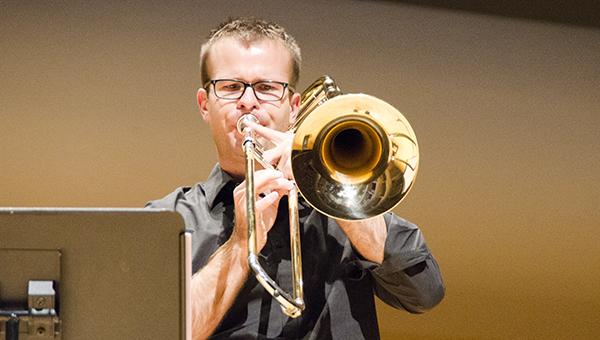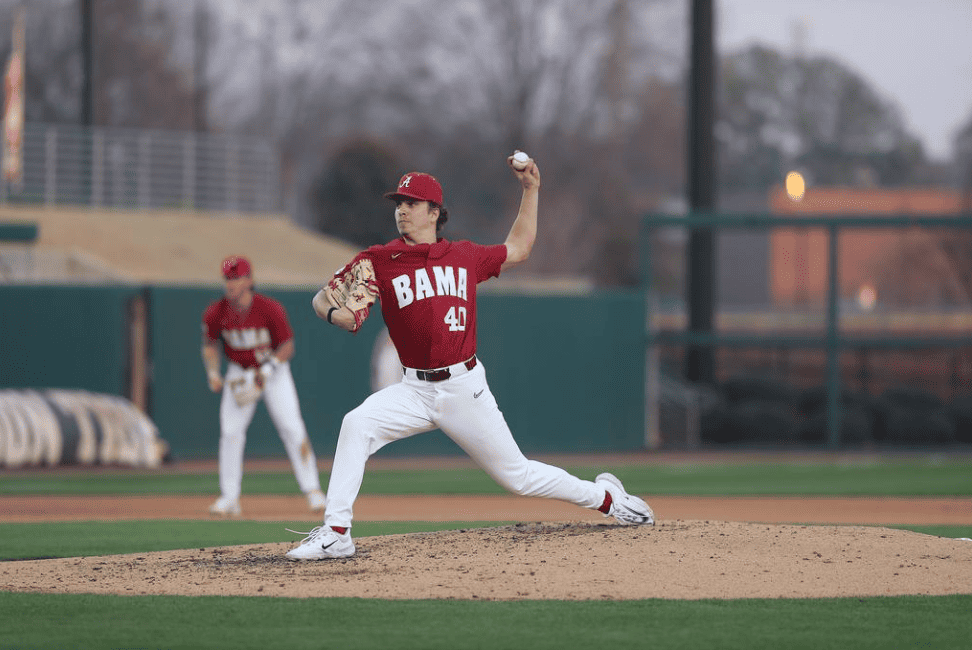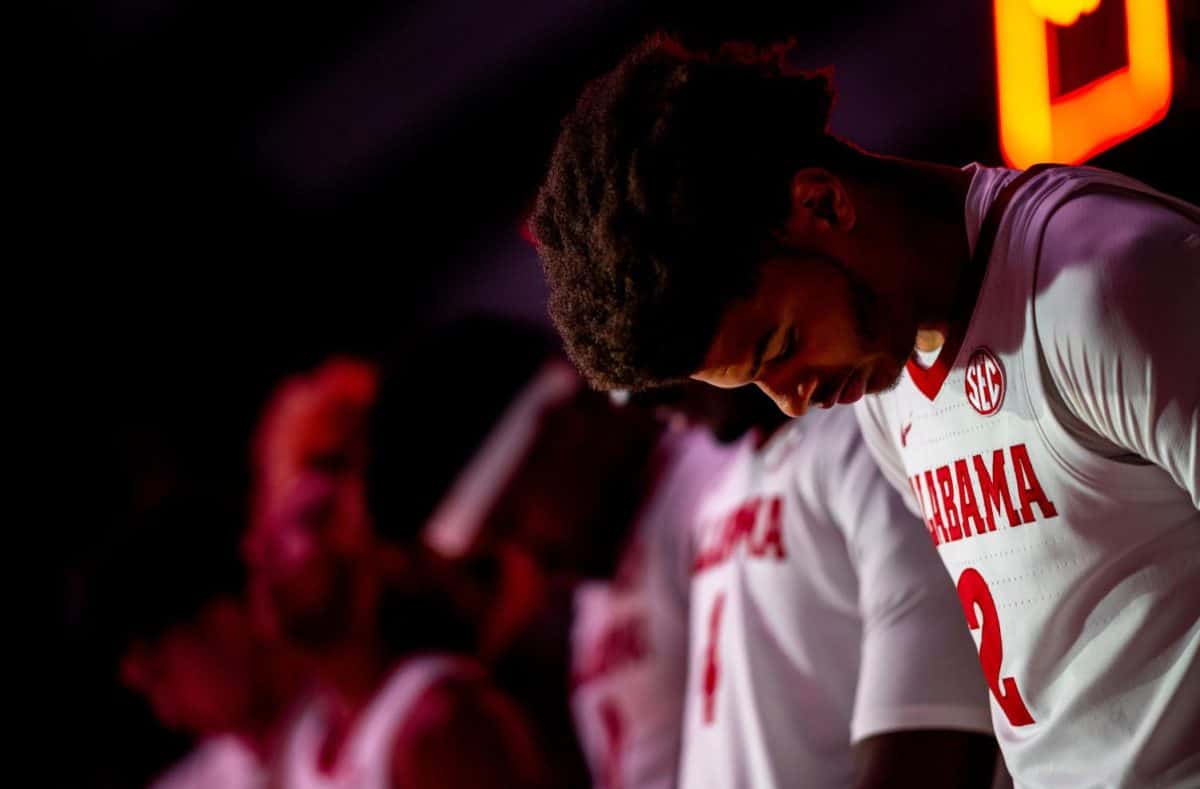Over the past semester, nursing homes in Tuscaloosa have listened to the ebb and flow of musical notes from Ben Lucy’s guitar.
The community performances were all part of the preparation process for Lucy’s solo concert, presented last Wednesday in the Recital Hall of the Moody Music Building.
Lucy, a senior majoring in music performance and philosophy, studies classical guitar and performed the concert to fulfill one of the final requirements of his music major. Lucy said being onstage with the sole accompaniment of an acoustic instrument presented its own set of challenges, different than those of previous performances.
“My theory is, you can only get better at performance by practicing performance,” Lucy said. “You can only get better at playing live by playing live.”
Students majoring in music therapy and music education perform a solo student recital during their senior year, and music performance students perform recitals their junior and senior years. The recitals are part of a graded course in the music programs, and music students are required to attend recitals for class credit and to support the students within their specific studio.
Although it seems intimidating, Lucy said he feels producing a convincing and stylistic concert is necessary to receive a degree.
“[Solos are] the closest thing to a real-life performance experience,” he said. “It’s showing that you really can do this.”
Jeremy Crawford, instructor of tuba and euphonium, assists some students in preparing for their senior recital, a practice that is common and characteristic of most collegiate music programs. Students have the opportunity to perform in studio concerts each semester, dressing in formal attire and simulating the atmosphere they can expect from their senior recital. These stage opportunities may help reduce nervousness, but not eliminate it completely, Crawford said.
“I think everybody has some nerves for most performances, not just a senior recital, but for any,” he said. “I think it’s a good thing for students to, in some capacity, have some nerves. Something that you’re nervous about, you’re more worried about – it shows that it’s important to you.”
The work showcased at a senior recital is meant to be reflective of the student’s strengths, and videos of the performance can then be used to audition for graduate school or other employers. Crawford said while no set process exists for selecting a student’s repertoire for the recital, music professors generally try to offer guidance to students so they may reach their greatest potential for success.
“Part of being a professional in music is having the ability and the experience to share that talent with others. That’s why the senior recital is a very important thing,” he said. “No matter what you do, whether you’re a teacher or a therapist or a performer, you have to be in front of people making music.”
Victoria Marts, a senior majoring in music education, performed her senior recital Sunday. Marts has been playing the flute for more than 10 years, and spent the last six months of her training practicing the pieces for the concert. Her repertoire included four different pieces, each 10 to 12 minutes in length.
Students performing senior recitals must also visit music services to select a time and receive information on how to complete the program distributed at the concert. Student musicians are required to dress in formal attire and select a pianist to work with for specific pieces of music that require accompaniment. Marts said the preparation has been a great learning experience.
“I’m going to go back to school eventually, and I doubt that I’ll do performance, but I will be in front of people, either teaching or conducting,” Marts said. “So it’s always good experience to get up in front of people and do something that is out of your comfort zone.”
Russ Ballenger, a third year doctoral student in trombone performance, also gave a student recital Sunday. The recital was the third of five student recitals Ballenger must perform before receiving his degree. He will prepare and perform five solo recitals instead of three recitals and writing a dissertation.
Ballenger’s music background, including experience with solo recitals, helped him receive a professor position at the University of Mary in Bismarck, North Dakota, where he currently assists other students in preparing solo works. The process gets easier the more it is done, he said.
Ballenger said while preparing for concerts, he encourages students to consider all choices of music, even if it wasn’t written for their particular instrument.
“You should choose [music] that speaks to you, and that you’ll enjoy practicing and performing,” he said.
Student and faculty concerts are open to the public, and are free of charge. The schedule can be found online by visiting events.ua.edu, and selecting the “School of Music” category.







